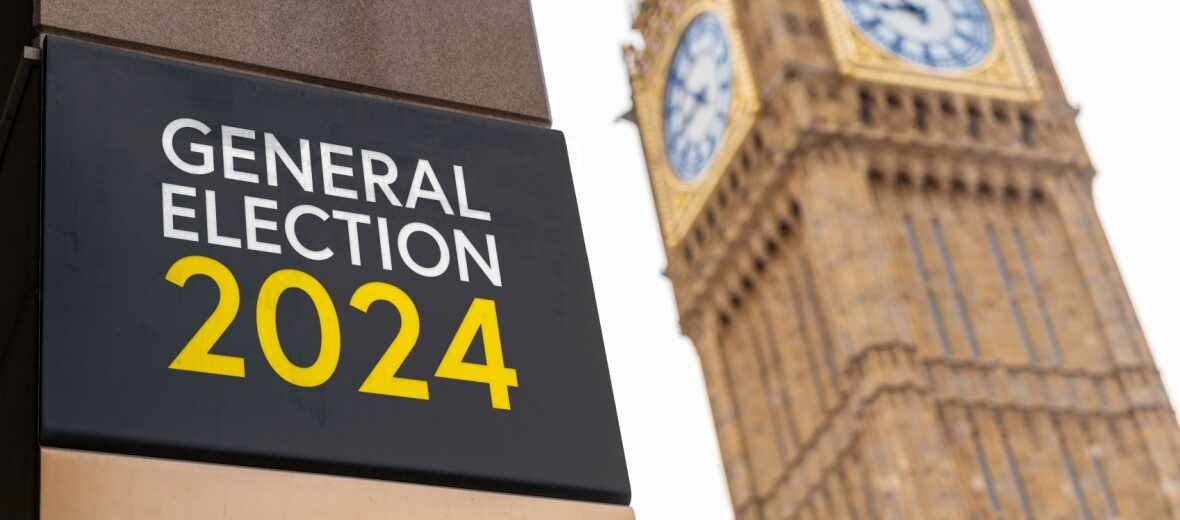Nearly all the votes have now been counted and the 2024 UK general election has resulted in a substantial Labour majority in excess of 170, with the Conservative party suffering their worst result in party history.
This means that Keir Starmer’s new administration will be able to govern comfortably, and the size of their majority means they will probably enjoy at least two full terms in office.
Furthermore, after such a heavy defeat, it will take some time for the Conservatives to provide more than token opposition, and – at least in the short term – they are likely to be distracted by the new threat posed by Nigel Farage’s Reform Party.
With Labour now back in power after a gap of more than 14 years, it’s important for you to consider the financial planning implications of some of the tax changes they have highlighted during the election campaign.
At a macro level, Labour have committed to follow strict fiscal rules
Although a new Labour government will mean an inevitable change in political emphasis, it’s important to bear in mind that they have continually reiterated their commitment to strict fiscal rules. This includes allowing the Office for Budget Responsibility (OBR) to review all their financial proposals.
This was something that the short-lived Liz Truss government conspicuously failed to do with their 2022 “mini-budget”, and Labour are determined not to alarm financial markets in the same way.
New chancellor, Rachel Reeves, has also pledged that Labour will take a strategic approach that provides individuals and businesses with an element of certainty and allows long-term planning.
Reeves has also committed to just one major fiscal event a year, and to provide due warning of tax and spending policies.
Whether you like Labour’s policies or not, financial stability and predictability is a good thing for our domestic financial markets and for anyone invested in UK-based portfolios.
They have pledged not to increase Income Tax, National Insurance, or VAT
While the incoming government have ambitious plans for public services which will need to be funded, their manifesto included a commitment not to raise Income Tax, National Insurance, or VAT.
This helps create an element of certainty from a personal finance perspective, although it does inevitably raise the question of how their long-term plans will be funded.
Additionally, Labour has pledged to continue the freeze in Personal Allowances announced by the previous chancellor, Jeremy Hunt, until 2028.
Non-dom status will be abolished completely
Perhaps the most radical tax change, and one that is likely to affect a number of our clients, is the commitment made in the Labour manifesto to abolish non-dom status.
The previous government announced the removal of non-dom loopholes in the 2024 Spring Budget and Labour now intend to go much further, replacing it with a “modern scheme for people genuinely in the country for a short period”.
According to their manifesto, this measure, along with a big investment in HMRC to help reduce tax avoidance, is expected to bring in £5.3 billion.
Furthermore, plans announced by the previous government for remittance basis users in the 2024/25 tax year to only pay tax on 50% of their foreign income for the 2025/26 tax year, will be dropped as the Labour manifesto confirms that it will not introduce such transitional relief.
There will be new restrictions on the use of offshore trusts to avoid Inheritance Tax
The Labour manifesto also said it will end the use of offshore trusts to avoid Inheritance Tax (IHT) as part of a drive to reduce tax avoidance by “large businesses and the wealthy”.
This change, and the changes to non-dom status you read about above, are clearly both subject to legislation, and the devil will be in the detail in terms of how, and when, these changes will be introduced.
Private schools will no longer be exempt from VAT
The Labour manifesto included a pledge to end the VAT exemption and business rate relief, currently enjoyed by private schools.
During the election campaign, Rachel Reeves confirmed that these changes will not come into force until September 2025 at the earliest.
Assuming schools pass on the full effect of these changes to parents, this will add roughly 20% to the headline cost of private education.
If you will be affected by this change, it may be worth contacting the relevant school to find out if it’s possible to pre-pay fees ahead of the changes, as this could potentially result in a substantial cost saving.
Many grandparents are often willing to help with the cost of school fees as a tangible way to support their grandchildren. Helping with the upfront cost will also be a highly effective way to transfer wealth between generations in a tax-efficient manner.
Labour have confirmed they will not reintroduce the pension Lifetime Allowance
Contrary to previous announcements, Labour has said it will not reinstate the Lifetime Allowance (LTA) that was removed by the previous government in their April 2023 Budget and abolished altogether in April 2024.
The decision not to reintroduce the LTA, on the grounds that it would be too complex to bring back the old rules, does at least provide you with some certainty around your short-term pension planning.
However, it also suggests that the new government may well be looking at a new pensions regime that makes pension saving more attractive to basic-rate taxpayers at the expense of higher earners.
At this stage, Labour has simply pledged a wide-ranging “pensions review” designed to improve outcomes.
An FTAdviser report during the election campaign suggested that, as the bill for pension tax relief runs into tens of billions of pounds, treasury officials could well be asked to come up with savings in this regard.
We could expect changes to ISAs and personal savings incentives
ISAs have arguably been a great personal finance success story since they were introduced in 1999. As it was a previous Labour government that introduced them, the new government are unlikely to change them too much.
However, the left-leaning think tank, the Resolution Foundation – who may well have the ear of an incoming Labour chancellor – have suggested that much of the benefit of ISAs is enjoyed by higher earners who can afford to maximise their contribution each year.
They have suggested that ISAs should be capped at £100,000, with the saving in tax revenue targeted at low income families.
The new government may well at least look to simplify the ISA regime, and it will be interesting to see what they do with the UK ISA announced in the last Budget.
You may see changes to Capital Gains Tax
Strong rumours are circulating that Capital Gains Tax (CGT) could also be a target as Labour look to raise money to fund some of their reforms, and as it’s not on the list of Income tax, VAT or National Insurance that you read about earlier.
Possible measures could include the scrapping of the annual CGT allowance, although this is nearly non-existent now and equalising CGT and Income Tax rates.
You may also se restrictions of business asset disposal relief, although this would run contrary to the new government’s aim to encourage and drive growth in the economy.
With changes imminent, you need to be on the front foot
The new chancellor will announce her first Budget in September. It’s likely that this will include many of the radical steps you have read about here. With such a big majority and the opposition in disarray, the new government will be looking to get their most contentious proposals onto the statute book as early as possible.
As you have probably realised by now, the planned changes outlined here make it imperative for you to review your non-dom, trust, and IHT arrangements.
Indeed, I’d go so far as to say that you should be making this one of your financial planning priorities.
Get in touch
If you would like to discuss how the changes planned by the new government could affect you, please get in touch.
You can contact us by email or, if you prefer to speak to us, you can reach us in the UK on +44 (0) 208 0044900 or in Hong Kong on +852 39039004.




 Production
Production